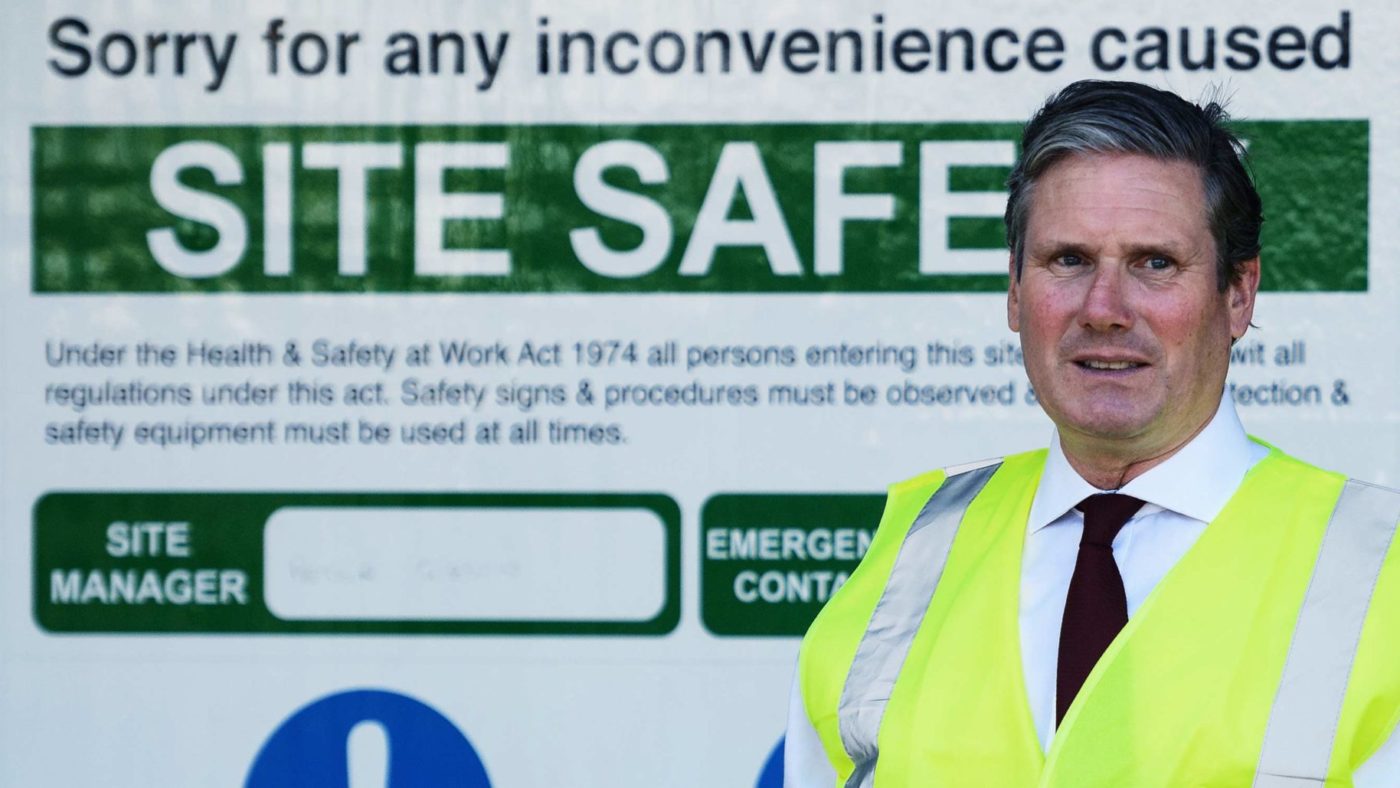It is now just over 100 days since Keir Starmer ascended to the hardest job in British politics. And, at least as far as the polls are concerned, things are going well.
Labour under his leadership has closed the gap with the Tories significantly from a 24-point peak earlier this year (though not much beyond the result Jeremy Corbyn secured at the general election in December). His personal ratings versus Boris Johnson, meanwhile, have closed even more dramatically. Polls now occasionally give Starmer the lead on the crucial question ‘Who would make the best Prime Minister?”. For Labour supporters who believe that question to be much the better bellwether for eventual electoral performance, this is a serious jolt in the arm. Sure, the not inconsiderable problem called Scotland lurks, elephant-like, in any proper assessment of the party’s prospects. But this is definitely, unequivocally, irrefutably better.
In two crucial aspects, Starmer has benefited hugely from the nature of pandemic politics. First, it has largely prevented the Tories from shaping the British peoples’ perceptions of him negatively from the bully pulpit of the print press. This has afforded the Labour leader an unusual degree of control over his first impressions, an opportunity he has not wasted by cynically attempting to portray himself as anyone other than Keir Starmer. Instead, he has sought to emphasise qualities – seriousness, attention to detail, decisiveness – that are both useful to the wider brand renewal that Labour needs post-Corbyn and that he himself can credibly embody.
This credibility is absolutely vital – all political images are to some extent a caricature, but the public have a keen nose for authenticity. A leader who allows a huge chasm to open up between projection and reality, is a leader that will soon find themselves deep in political trouble. Just ask Theresa May.
Second, to borrow a phrase from former Conservative strategist Lynton Crosby, Covid-19 has stripped the barnacles off the boat. Alongside racial injustice and the Black Lives Matter movement, the pandemic leaves British politics with only three real issues – public health, education and the economy. Given how readily the Labour Party distracts itself with cultural and ideological ephemera – not to mention overwrought quasi-sociological debates about which voters it must most appeal to now – this is a tactical godsend for its new leader. Even Brexit, which could easily have become a liability for Starmer, barely gets a look in.
Starmer has made good decisions too. The imminent Equalities and Human Rights Commission report into Labour and anti-Semitism will be easily the biggest test of his leadership so far. However, from day one he has shown an encouraging determination – in deeds as well as words – to confront this scandal head on. This has been coupled with an unexpectedly ruthless restoration of discipline in party HQ, Parliament and online.
Yet in the last few weeks, murmurs of discontent have begun to emerge and not just from the usual left-wing sources. The charge – prosecuted by both his Labour critics and the Prime Minister – is that he lacks the courage to go beyond analysis and questions; that behind the sober demeanour there is little of political substance. That this may have purchase with both the right and left political brains should worry team Starmer – it is an early warning the perception could stick beyond Westminster and Twitter. It is not entirely unfair either. For all that Starmer has asked difficult questions of the Government, Labour have not yet – not even before last week’s ‘mini-budget’ – nailed themselves to the mast of a major policy commitment.
This reluctance is understandable. The importance of policy in shaping political outcomes is hugely overestimated – particularly by Labour’s wonkishly inclined supporters. But policy is detailed, policy is serious, policy requires decisiveness. The problem for Starmer is that the policy vacuum threatens to undermine his attempt to renew the Labour brand around his apparent personal qualities. In other words, he risks the dreaded gap between projection and reality.
This is something he needs to fix and fast. Labour must offer a credible solution to a challenge in one of the pandemic’s trinity of issues. Personally, I would be taking a bet that the furlough scheme will need serious reform, if not an extension, for the most pandemic-sensitive sectors of the economy before October. A distinctive offer here could then allow Labour a position from which to attack the Government on rising unemployment and chip away at its key polling lead on economic competence.
But in all honesty, it does not matter much what topic within health, education or the economy he chooses. What matters is that he shows he is capable of political choice. That, as Nye Bevan might have put it, he is fluent in the “language of priorities”.
Click here to subscribe to our daily briefing – the best pieces from CapX and across the web.
CapX depends on the generosity of its readers. If you value what we do, please consider making a donation.


